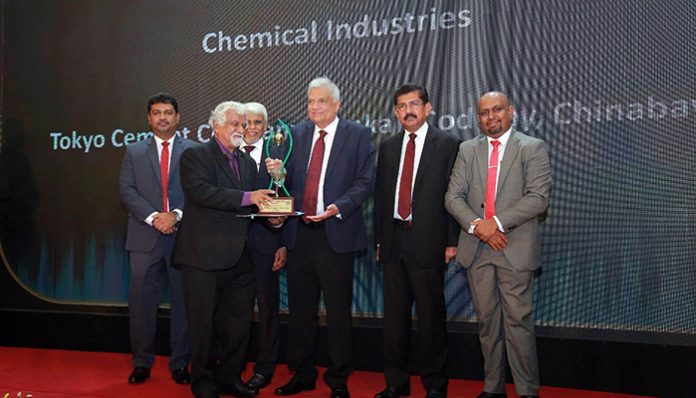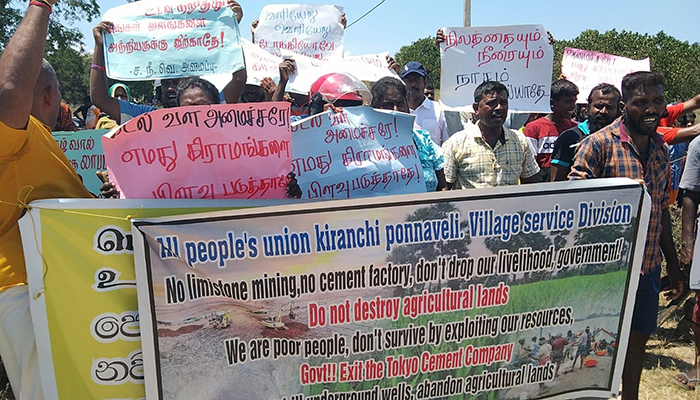A Sri Lankan minister who made a bid to seize land from a village in war-torn north, for a cement company that has won presidential gold medals as an eco-friendly business, had been stopped in his tracks by environment conscious locals.
Residents of the Ponnaveli village in the Punakari Divisional Secretariat in Killinochchi point out that the said project poses a risk of destruction of farming and grazing land resulting in the loss of livelihoods. They further emphasize that the mining of limestone – a key raw material in cement production- would further exacerbate the prevailing severe drinking water issue.
A resident of the Ponnaveli village who joined the protest held on 5 April (Friday) against Fisheries Minister Douglas Devananda told journalists that the Minister attempted to secretly give lands to the Tokyo cement group. These villagers have been protesting for 270 days against these plans.
“During the protest which has completed 270 days, the Fisheries Minister attempted to measure the land in our area through the surveyor department in order to give them the land and grant approval to mine limestone. That was without informing the protesters and villagers. He evaded the people who engaged in a peaceful protest and tried to commence limestone mining. However, due to our people’s strong opposition, he left.”
During the protest launched by the villagers against damages to environment and livelihoods, various slogans were chanted: “Fisheries Minister, do not divide our villages”, “do not destroy land and water”, “stop limestone mining immediately”, “leave Tokyo – leave.”
It was Tokyo Cement that received the 2023 gold medal for “exceptional environmental conscious business practices” from President Ranil Wickremesinghe. The event was organized by the Central Environmental Authority (CEA).
Regional reporters said that although the cement company had planned to commence the mining of limestone, which is a key ingredient in the production of cement, they were stopped from doing so due to mass opposition.
Due to various hardships caused by the war waged in the North, the residents of the Ponnaveli village had to leave their village and were internally displaced for years. With the end of the war, they had returned to their village after 2010.
Over 1,600 families live in the five villages (Ponnaveli, Waleppadu, Kiranchi, Palavi and Weravil) belonging to the Ponnaveli Grama Niladhari Division, and their main sources of income are the fisheries industry and agriculture including paddy cultivation. In addition, there are grazing land in this area and they are used to feed over 20,000 dairy cows and at least a thousand goats.
According to regional reporters, those villagers too support the Ponnaveli villagers’ protest.
Last year, the villagers levelled allegations that the cement company had been granted preliminary permission to mine limestone. The area that was allegedly targeted nearly 1,000 hectares that belong to the villages that include farming and grazing land.



